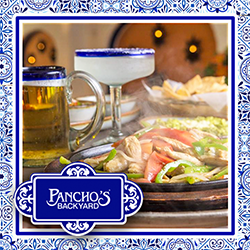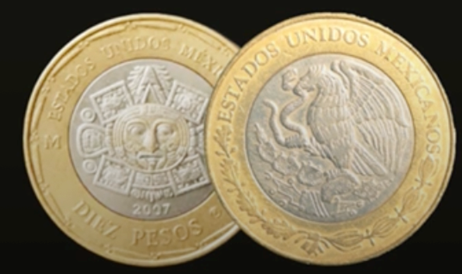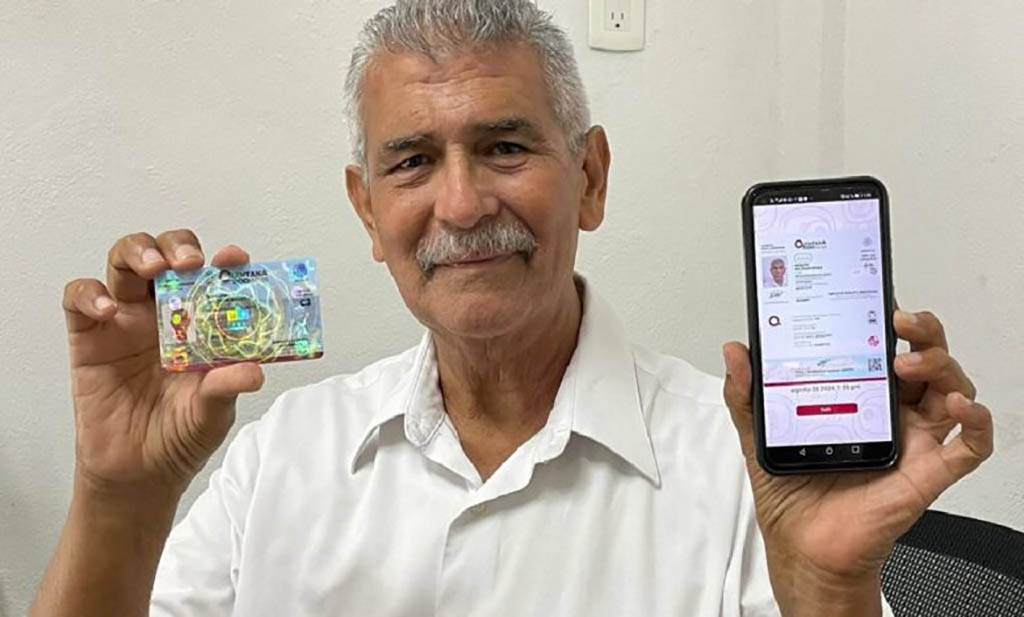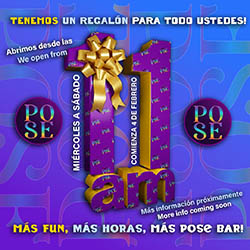Cozumel Spanish
Unconventional Tips for Learning Island Spanish
One of the many things that baffle me about Cozumel island life is how people can take so many different approaches to learning the language when they move here. While some expats go about it in the more traditional way by taking Spanish classes and joining conversational groups, there is another set of people who, in my opinion, choose to go about it the wrong way entirely.
Why do some people choose to only learn the “naughty” words first?
I just plain don’t understand people who take this approach. The usual scenario for this group goes something like this: They’ve been hanging out with their new local friends for a while and then reach a level of comfort where they feel they can ask these friends for some naughty swear words. Stereotypically, these people can’t string together an entire sentence in Spanish, much less phone an emergency operator to summon an ambulance, however, they can now swear like a cantina-drunk on payday.
Although Cozumel is a tropical island, it’s still in Mexico. Mexico, generally speaking, is a conservative, traditional country. If you walk into the cable company to change your service and use your cantina-speak, you’re not going to score any brownie points. In fact, you may not get helped at all.
Trust me, I swear like a sailor in English. I’m from New Haven – a place where we use the F-word as an always applicable adjective. Anyone who’s had more than a 5-minute chat with me has no doubt experienced at least one potty word flying out of my unfiltered mouth. But interestingly enough (and much to my long-suffering husband’s delight), I don’t swear in Spanish. Instead, I use the very old and outdated, almost chaste exclamation of Chispas! Literally translated, this means, “Sparks!” Sure, it makes a lot of Mexicans look at me and laugh, but it keeps me from getting the side eye.
My advice? Learn all of the polite words first instead.
A friend of mine, who is a frequent island visitor, once asked me how to say, “I want to go to the gym,” so she could tell a taxi driver. I gave her the phrase, but also suggested she preface it with, “I’m sorry to be a bother but…..” It’s been my experience that you can ask for a lot of unreasonable things and still get your own way if you start with that statement.
My opening line – to pretty much anyone from the bag boy at the grocery store to my bank teller – is, “Good Morning.” I learned this lesson the hard way. One day, frazzled and late, I walked into the Casa Rubber Hardware store and blurted out, “I need a kilo of nails.” The woman behind the counter stood her ground, looked me in the eyes, and said, “Good morning, how are you?”, essentially forcing me to be a polite human being to her. An excellent lesson in polite behavior for pretty much anywhere, though much more imperative here on island. Think of it this way – I took one for the team and embarrassed myself with my rudeness so you don’t have to. You’re welcome.
Here are a few of the stock phrases I use to butter my way through daily existence in Cozumel:
• I’m sorry to bother you = Disculpe la molestia
• I apologize for my Spanglish = Perdoname para mi espanol
• Thanks for taking the time to help me = Gracias para tomar el tiempo para ayudarme
• Thank you, what a nice person you are! = Gracias, que amiable eres
• Have a nice day = Que tengas un buen dia
Even Mexicans Don’t Really Swear.
Don’t believe me? Well, you should understand that Mexicans have actually morphed a lot of non-swear words into naughty words, in spite of their original purpose. Meaning, while it may sound dirty – and they certainly use it like it is – in reality, they’re not really swearing. Self-admitted word geek that I am, I’ve actually researched the original/intended definitions of some of these words, and, sadly, I admit that there might have been a few times (well, maybe several), where I’ve taken it upon myself to educate (erm…bossily correct…) my fellow expats when they drop them into their English sentences. For example:
pinche
This word is very popular with the gringos. It is incorporated commonly as an F-Bomb.
Common Usage: “I’ve been waiting all day for that pinche plumber to show up and he’s still not here.”
Actual Definition: Chef’s assistant.
verga
I used to think this was a VERY dirty word, as it’s often used as a very vulgar reference to a specific part of the male anatomy.
Common Usage: Er, well you get the drift.
Actual Definition: A part of the mast on a sailboat.

Now, before I climb off my sanctimonious soap box, let me confess about how I first started to learn Spanish, which, unless you’ve recently suffered a blunt-force trauma to the head, you can see how it probably wasn’t the best way: I learned my Beginner Spanish from HBO and Warner Brothers TV. Seriously – I have Friends and Chandler Bing to thank for my early understanding of Espanglish. I watched a lot of television, and I read the subtitles. And while it didn’t help a lot with my pronunciation, I told myself that it was educational. And when that didn’t suffice, I then went on to marry the most adorable human dictionary I could find. Now, while I realize this is likely not an option for everyone, it’s been a fairly successful solution for me for 14 years and I can’t help but recommend it…

The Living Dictionary in all his glory
This blog originally appeared in Women Who Live on Rocks.
______________________________
Una ex yanqui de Connecticut quien llama hogar a Cozumel desde hace más de 15 años. Laura escapó al Caribe hace años, desplazándose de una isla a otra dando clases de BUCEO. Se dedicó a perder el tiempo en Jamaica y finalmente se detuvo en Cozumel para pasar unas vacaciones de 2 semanas que aún no terminan. Convenciendo a sus padres que pagaran una elegante universidad privada, obtuvo su título en Periodismo y Laura crea semanalmente Cozumel 4You, medios sociales y artículos promocionales sobre la Isla y también es moderadora en el grupo Cozumel 4 You en Facebook que actualmente cuenta con 25,000 miembros. Fabián, s umuy tolerante marido, desde hace mucho tiempo se resignó a no tener vida privada, pues se ha visto implicado en los diversos proyectos y planes que urde Laura. Son orgullosos padres de diversos perros y gatos rescatados. Mientras contempla su paso a través de la vida en el Caribe mexicano,Laura continúa siendo la pesadilla en la existencia de su muy tradicional suegra mexicana.
- Huitlacoche - February 20, 2026
- Cozumel Coatis - February 20, 2026
- Cozumel 4 You NEWS February 20, 2026 - February 20, 2026
An ex-Connecticut Yankee who has called Cozumel home for over 18 years, Laura ran away to the Caribbean years ago, bumped around the islands teaching SCUBA diving, lost some time in Jamaica, and finally stopped in Cozumel for a 2 week vacation that hasn’t ended yet. With a degree in Journalism from a fancy private college she convinced her parents to pay for, Laura writes, edits, and creates the weekly Cozumel 4 You news, social media, and promotional articles about the island, as well as moderates the Cozumel 4 You Facebook group, which currently has over 25,000 members. Her long suffering husband, Fabian, has long since resigned himself to having zero private life, as he’s been involved in her various schemes and plots since his arrival. Proud parents to a variety of rescue dogs and cats, Laura continues to be the bane of her traditional Mexican mother-in-law’s existence, as she muses her way through life in the Mexican Caribbean. ______________________________ Una ex yanqui de Connecticut quien llama hogar a Cozumel desde hace más de 15 años. Laura escapó al Caribe hace años, desplazándose de una isla a otra dando clases de BUCEO. Se dedicó a perder el tiempo en Jamaica y finalmente se detuvo en Cozumel para pasar unas vacaciones de 2 semanas que aún no terminan. Convenciendo a sus padres que pagaran una elegante universidad privada, obtuvo su título en Periodismo y Laura crea semanalmente Cozumel 4You, medios sociales y artículos promocionales sobre la Isla y también es moderadora en el grupo Cozumel 4 You en Facebook que actualmente cuenta con 25,000 miembros. Fabián, s umuy tolerante marido, desde hace mucho tiempo se resignó a no tener vida privada, pues se ha visto implicado en los diversos proyectos y planes que urde Laura. Son orgullosos padres de diversos perros y gatos rescatados. Mientras contempla su paso a través de la vida en el Caribe mexicano, Laura continúa siendo la pesadilla en la existencia de su muy tradicional suegra mexicana.
Huitlacoche
Huitlacoche: Gourmet, Good for You, and Very Much at Home in Mexico...
ByLaura WilkinsonApril 29, 2016$10 and $20 peso coins coming into circulation in 2026
by Monica Sauza Although they may not look different, the materials used...
ByLaura WilkinsonApril 29, 2016Cozumel Digital License
How to Obtain a Digital Copy of your Cozumel Drivers License The...
ByLaura WilkinsonApril 29, 2016New Mobility Rules, Royal Beach Club Impact, and Environmental Ruling against Calica.
Text & Translation by Moises JH & Tono Lopez Cozumel Mobility Update:...
ByLaura WilkinsonApril 29, 2016





















Leave a comment